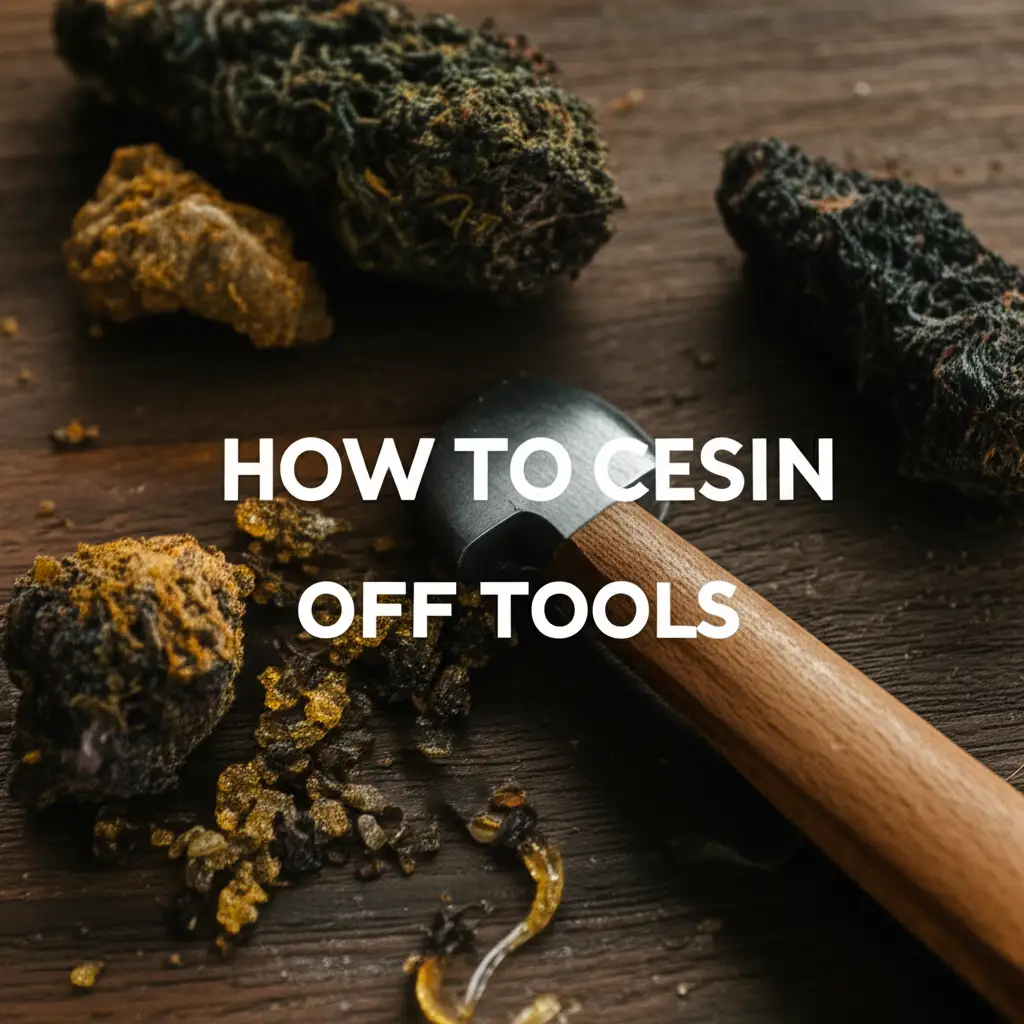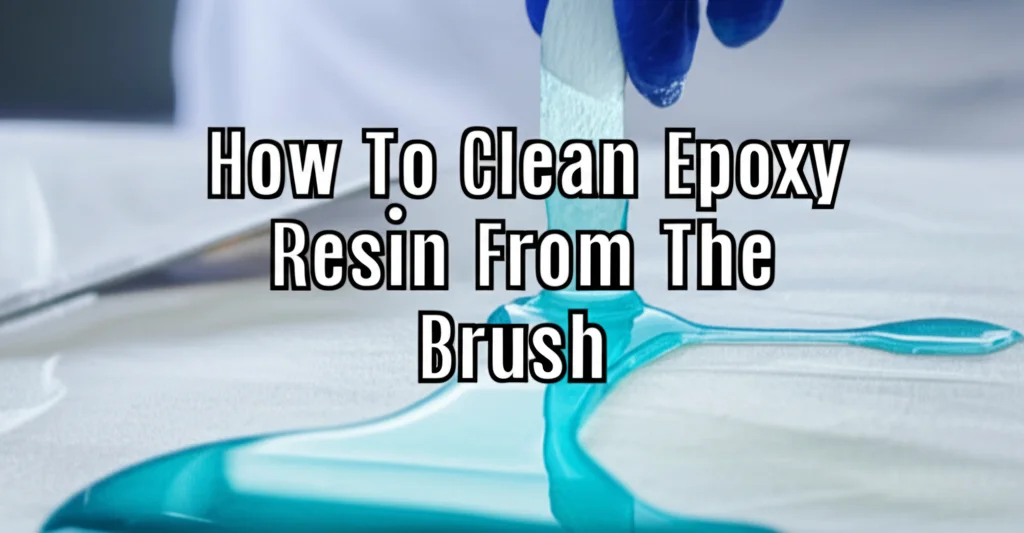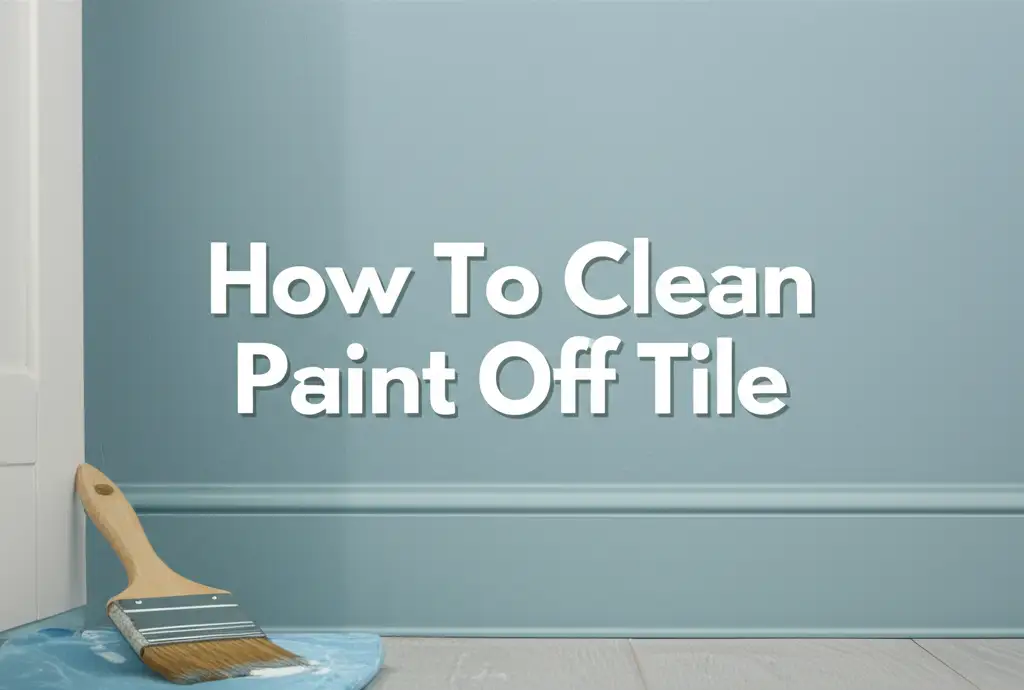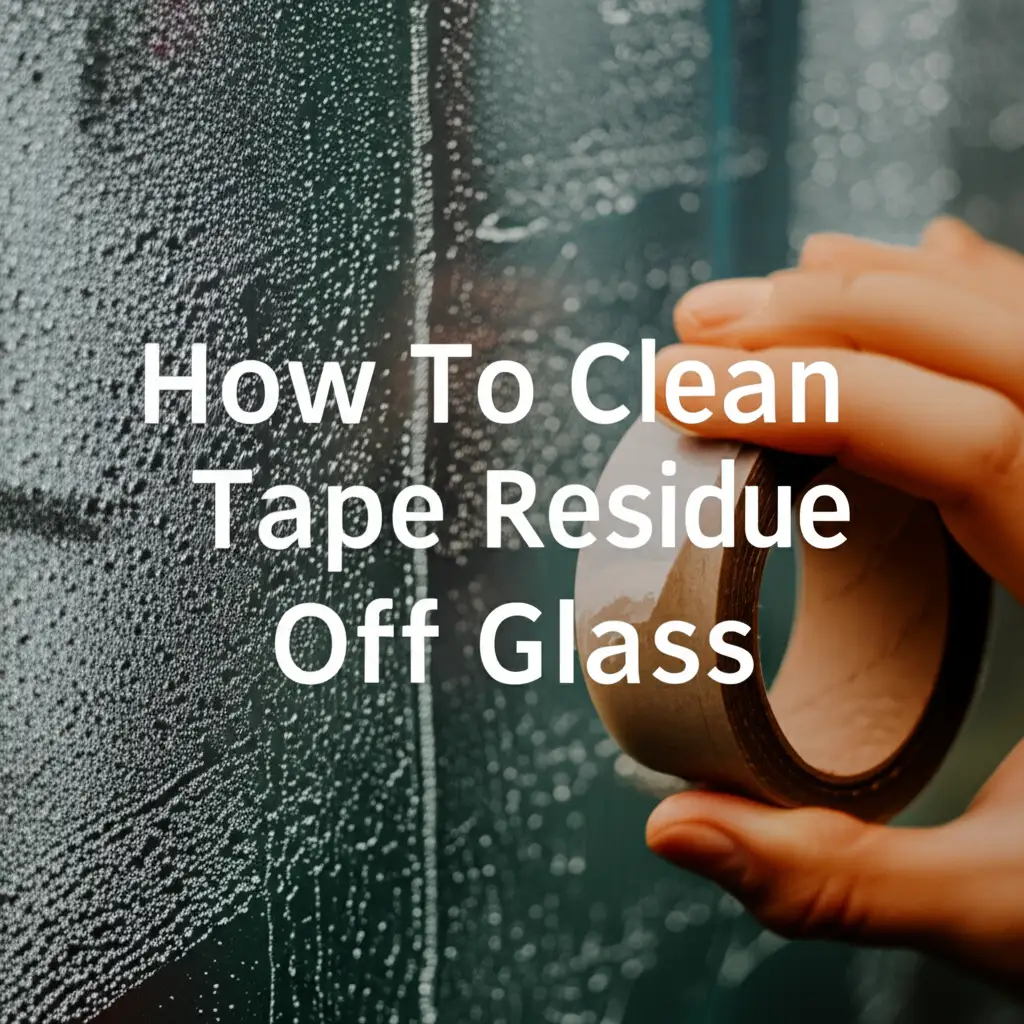· DIY Cleaning Tips · 12 min read
How To Clean Epoxy Resin Off Tools
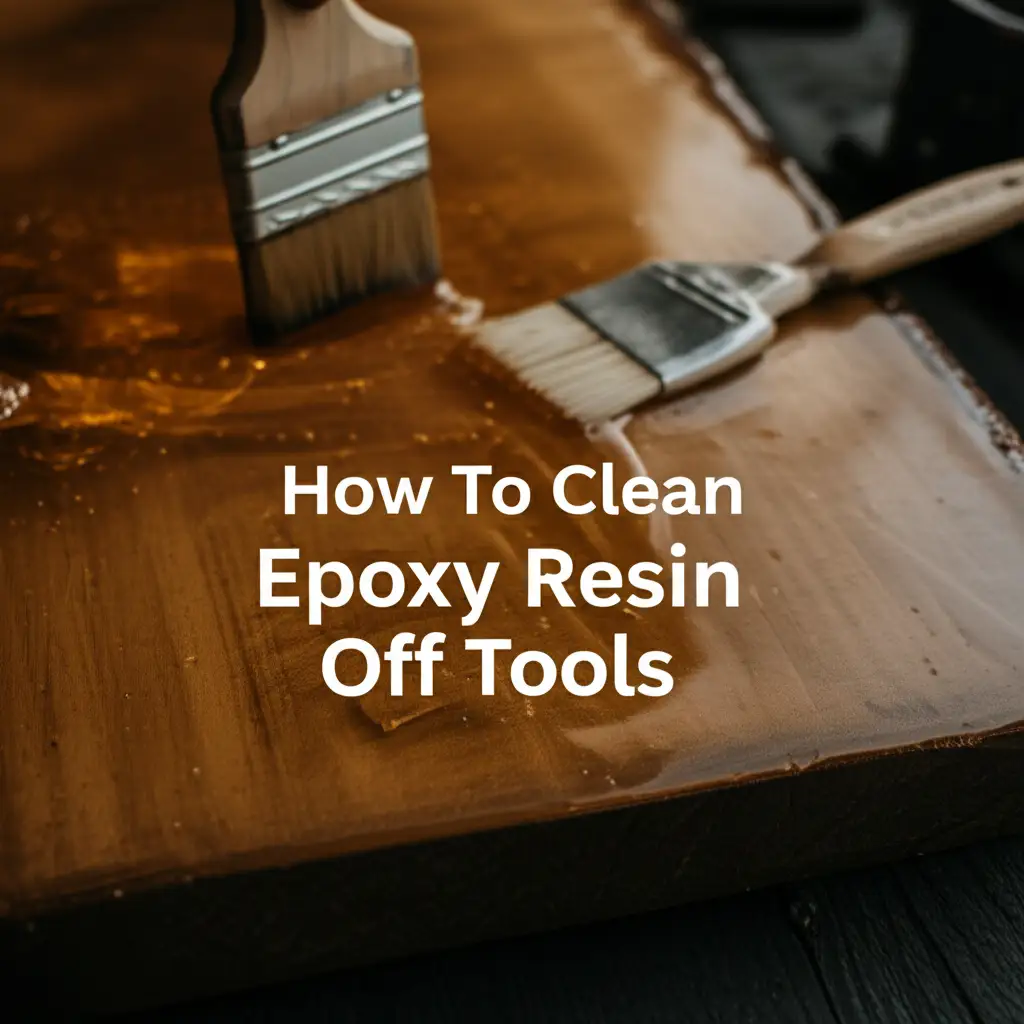
Mastering How To Clean Epoxy Resin Off Tools
Working with epoxy resin creates beautiful crafts and strong bonds. However, it often leaves a sticky mess on your tools. Learning how to clean epoxy resin off tools is a skill every crafter needs. Dirty tools make future projects harder and can ruin your work. You want to keep your tools in top condition for years of use.
This guide will show you easy ways to clean your tools. We will cover different methods for wet and cured resin. We also discuss safety, tool care, and preventing future messes. By the end, you will know how to keep your epoxy tools perfectly clean.
Takeaway
- Clean wet epoxy resin immediately with solvents like isopropyl alcohol.
- Remove cured epoxy resin using heat, scraping, or specific chemical removers.
- Always wear appropriate safety gear, including gloves and eye protection.
- Proper tool maintenance extends the life of your crafting equipment.
- Prevent resin buildup by using disposable items or protective covers.
How do you clean epoxy resin off tools effectively?
To clean epoxy resin off tools, address wet resin quickly with isopropyl alcohol or acetone. For cured resin, use heat or mechanical removal methods like scraping, often aided by solvents, always prioritizing safety gear and proper ventilation.
Understanding Epoxy Resin: Wet vs. Cured State
Epoxy resin changes its state over time. This change affects how you clean it from your tools. Fresh epoxy is a liquid, easy to remove with simple solvents. Cured epoxy is solid and hard, requiring different cleaning methods.
The Nature of Wet Epoxy Resin
Wet epoxy resin feels sticky and fluid. It has not undergone its chemical hardening process. You can easily wipe off wet resin with a cloth. Common solvents like isopropyl alcohol or acetone dissolve it quickly. Acting fast is key when dealing with wet resin. This prevents it from hardening on your tools.
The Nature of Cured Epoxy Resin
Cured epoxy resin is hard and rigid. It feels like plastic. The chemical reaction between resin and hardener finishes. Solvents that work on wet resin are often ineffective on cured resin. Removing cured resin typically requires more effort. You might need to scrape it off or apply heat. Different tools respond better to specific methods.
Essential Safety First When Handling Epoxy Resin
Safety is always important when working with epoxy resin. It is even more critical during cleanup. Resin and its solvents can irritate skin and eyes. They can also produce fumes. Taking proper precautions protects your health.
Protecting Yourself from Resin and Solvents
Always wear gloves when handling epoxy resin. Disposable nitrile gloves are a good choice. They protect your hands from sticky resin and harsh solvents. Eye protection is also necessary. Safety glasses or goggles shield your eyes from splashes. Do not touch your face with resin on your gloves.
Ensuring Good Ventilation
Work in a well-ventilated area. This helps to disperse fumes from resin and cleaning agents. If possible, open windows and doors. Use a fan to circulate air. Good ventilation reduces your exposure to airborne chemicals. Proper airflow makes the cleaning process safer for you.
Cleaning Wet or Uncured Epoxy Resin from Tools
Cleaning wet epoxy resin is much simpler than cleaning cured resin. Speed is your biggest ally here. The sooner you act, the easier the cleanup. Many common household items work well for this task.
Using Isopropyl Alcohol (Rubbing Alcohol)
Isopropyl alcohol is a popular choice for wet epoxy. It is effective and widely available. Simply pour some alcohol onto a paper towel or rag. Wipe down your tools thoroughly with the alcohol. The resin will dissolve and lift away.
Rubbing alcohol works on brushes, silicone mats, and plastic tools. It leaves surfaces clean and ready for your next project. This method is gentle on most materials. Always check for material compatibility first. You can also use it to clean up small spills.
Applying Acetone (Nail Polish Remover)
Acetone is another powerful solvent for wet resin. It works very quickly. Apply acetone to a cloth or paper towel. Gently wipe the resin off your tools. Acetone can be stronger than isopropyl alcohol.
Be careful when using acetone on plastic tools. It can sometimes damage or cloud certain plastics. Test a small, hidden area first. Acetone is excellent for metal tools and silicone surfaces. It helps remove stubborn uncured epoxy effectively.
Other Effective Solvents for Wet Resin
Denatured alcohol also works well on wet epoxy. It is similar to isopropyl alcohol in its effectiveness. Mineral spirits can also dissolve uncured resin. Always ensure proper ventilation when using these solvents. They are stronger and require more caution.
For larger spills or sticky surfaces, use more solvent. Wipe until all resin is gone. Finish by wiping tools with a clean, dry cloth. This removes any solvent residue. Always dispose of resin-soaked cloths properly.
Removing Cured Epoxy Resin from Tools
Cured epoxy resin presents a bigger challenge. It has hardened into a solid material. Solvents that work on wet resin are mostly ineffective here. You will need to use different approaches.
Mechanical Removal: Scraping and Sanding
Scraping is often the first step for cured resin. Use a plastic scraper for delicate surfaces. A metal scraper or utility knife works for robust tools. Carefully scrape away the hardened resin. Be gentle to avoid damaging your tool.
For stubborn spots, light sanding may help. Use fine-grit sandpaper. Gently sand the resin until it comes off. This method works well for metal and wood tools. Clean the dust thoroughly after sanding. This prevents new messes.
Applying Heat to Loosen Cured Resin
Heat can soften cured epoxy resin. This makes it easier to remove. Use a heat gun or a hair dryer on a low setting. Direct the heat onto the resin spot. The resin will become pliable.
Once soft, immediately scrape the resin off. Use a plastic scraper or a putty knife. Be careful not to overheat the tool. Excessive heat can damage some materials, especially plastics. Always wear heat-resistant gloves for protection.
Using Specialized Epoxy Removers
Some products are designed to remove cured epoxy. These are often stronger chemical solutions. They can dissolve or soften the hardened resin. Follow product instructions carefully. These removers often contain powerful solvents.
Apply the remover to the cured resin. Let it sit for the recommended time. Then, scrape or wipe the softened resin away. Always use these products in a well-ventilated area. Wear full personal protective equipment.
Cleaning Specific Types of Epoxy Tools
Different tools need different cleaning approaches. The material of the tool guides the best method. Knowing these specific tips keeps your tools safe and clean.
Cleaning Brushes and Stirring Sticks
Disposable brushes and sticks are often used once. If you want to reuse them, clean them immediately. For wet resin, soak brushes in isopropyl alcohol or acetone. Swirl the brush to loosen the resin. Wipe the bristles with a paper towel. Repeat until clean.
For cured resin on brushes, removal is very hard. It is often better to use disposable brushes. You can try soaking them in a strong epoxy remover. This might soften the resin enough to scrape it off. For cleaning resin out of silicone cups, similar solvent soaking methods work well.
Caring for Silicone Mats and Molds
Silicone is naturally non-stick. Wet resin comes off silicone easily. Just wipe it with a cloth and isopropyl alcohol. Cured resin often peels right off silicone. Flex the silicone mat or mold. The hardened resin will usually crack and detach.
If resin sticks stubbornly, try gentle scraping. Use a plastic scraper to avoid damage. Silicone is durable, but sharp objects can cut it. Store silicone mats flat to prevent creases. Clean them after every use for longevity.
Cleaning Metal Tools (Spatulas, Scissors, Blades)
Metal tools are robust. For wet resin, wipe them with acetone or denatured alcohol. These solvents work very well on metal surfaces. Use a clean rag to ensure all residue is gone.
For cured resin on metal, mechanical removal works best. Use a metal scraper or a utility knife. Be careful not to scratch the tool’s surface. A heat gun can soften cured resin on metal tools. This makes scraping easier. After cleaning, wipe metal tools dry. This prevents rust.
Cleaning Plastic Tools (Mixing Cups, Spreaders)
Plastic tools need a gentle approach. Acetone can damage some plastics. Test a small area first. Isopropyl alcohol is generally safer for plastics. Wipe wet resin off immediately with alcohol.
For cured resin on plastic, avoid harsh scraping. Plastic can scratch easily. Try heating the resin gently with a hair dryer. Then, carefully scrape with a plastic scraper. If resin bonds too strongly, the tool might be disposable.
Prevention is Key: Avoiding Epoxy Resin Messes
The best way to clean epoxy resin off tools is to prevent it from getting there. Proactive measures save time and effort. A little planning goes a long way.
Using Disposable Tools and Liners
Many tools come in disposable versions. Use disposable mixing sticks, cups, and brushes. This eliminates cleanup entirely. You simply throw them away after use. For mixing, line your containers. Plastic liners or silicone inserts catch the resin. How to clean with vinegar and baking soda methods are great for general cleaning, but for epoxy, prevention is often easier.
This strategy saves reusable tools from resin contact. It simplifies your cleanup routine significantly. Always have a supply of disposables on hand.
Protecting Your Workspace and Tools
Cover your work surface with plastic sheeting or silicone mats. This protects tables from spills. You can also apply a thin layer of release agent to tools. Wax or silicone spray can make resin less likely to stick.
Wipe down tools immediately after use. Do not let resin sit and harden. A quick wipe can save hours of scraping later. Keep a roll of paper towels and a bottle of isopropyl alcohol nearby. This makes quick cleanup easy.
Proper Storage After Cleaning
Store your tools properly after cleaning. Ensure they are completely dry. Moisture can cause rust on metal tools. Keep tools organized in a toolbox or drawer. This prevents damage and keeps them ready for your next project.
Proper storage also means keeping them away from dust. Dust can stick to any remaining residue. Clean tools perform better and last longer. A dedicated cleaning station can make this process efficient.
Eco-Friendly Practices and Proper Disposal
Working with chemicals requires responsible disposal. Epoxy resin and its cleaning agents are not ordinary waste. Proper handling protects the environment. It also keeps your home safe.
Disposing of Resin Waste and Solvents
Never pour liquid resin or solvents down the drain. They can contaminate water systems. Place resin-soaked rags in a sealed bag. Let any residual resin cure in a well-ventilated area. Once cured, it is safer to dispose of.
Check local regulations for chemical waste disposal. Some areas have special drop-off points. You may need to treat them as hazardous waste. Always follow guidelines for your community.
Reusing and Recycling Where Possible
Consider using reusable tools made of silicone or HDPE plastic. These materials are easier to clean. They reduce your overall waste. You can also repurpose old plastic containers for mixing.
Recycle empty solvent bottles if allowed by your local facility. Clean them thoroughly before recycling. Reducing waste helps the environment. It also saves you money on supplies.
Frequently Asked Questions
Can I use rubbing alcohol to clean cured epoxy resin?
No, rubbing alcohol is effective for wet, uncured epoxy resin. Once epoxy hardens, rubbing alcohol does not dissolve it. You will need stronger methods for cured resin, like heat or mechanical removal.
What is the best solvent for cleaning wet epoxy resin?
Isopropyl alcohol (rubbing alcohol) and acetone are excellent solvents for cleaning wet epoxy resin. Both work quickly to dissolve and remove the sticky liquid. Always use them with good ventilation and appropriate safety gear.
How do I remove epoxy resin from my hands or skin?
Remove wet epoxy from skin immediately using soap and warm water. If soap is not enough, use a small amount of isopropyl alcohol. Do not use acetone on skin excessively, as it can cause dryness. For cured resin on skin, gentle scrubbing or a mild abrasive can help.
Is it safe to use a heat gun on all tools to remove epoxy?
Using a heat gun can soften cured epoxy, making it easier to remove. However, be cautious with plastic tools, as excessive heat can melt or warp them. Metal and silicone tools generally tolerate heat better. Always use heat-resistant gloves.
Can I clean epoxy resin off clothes?
Cleaning wet epoxy off clothes is possible with solvents like acetone or isopropyl alcohol, but test a hidden area first. Once epoxy cures on fabric, it is very difficult to remove without damaging the material. Prevention is best; wear old clothes or an apron.
How do I prevent epoxy resin from sticking to my tools?
To prevent resin from sticking, clean tools immediately after use, before the resin cures. Use disposable tools when possible. You can also apply a release agent, like wax or silicone spray, to tools before starting your project.
Conclusion
Cleaning epoxy resin off tools is a critical part of working with this material. You have learned that the state of the resin dictates the cleaning method. Wet resin cleans up easily with common solvents like isopropyl alcohol or acetone. Cured resin requires more effort, involving heat, scraping, or specific chemical removers.
Prioritizing safety is always important. Always wear gloves and eye protection. Ensure good ventilation to protect your health. We also discussed caring for different tool types. Remember that preventing messes saves time and effort. Using disposable tools and protecting your workspace makes a big difference. With these tips, you can keep your tools clean and ready for many more projects. Keep your workshop clean and your creativity flowing!
- epoxy resin cleaning
- tool cleaning
- resin removal
- DIY cleaning
- crafting tools
- epoxy spills
- tool maintenance

